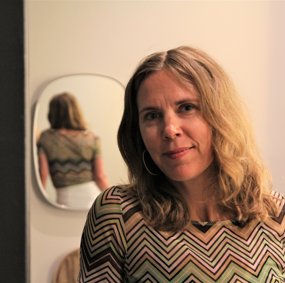Director Helene Ingierd: - This is what we will focus on in 2023
The role of supervisors and international cooperation are the two priority topics. There will also be several new resources for the research institutions.

- An overarching goal of the National research ethics committees (FEK) is to contribute to society's trust in research. In order to do that, it is essential to talk to many actors in the research system, and to spread knowledge to the public about the values, principles and norms on which the research is founded.
FEK will continue to emphasize the dialogue with researchers and the research institutions in order to strengthen the work with research ethics and research integrity. We know that there are a lot of good initiatives going on at different institutions, but at the same time we see a need for guidance and exchange of experience. The National Audit Office's report (Document 1 (2021 – 2022)) revealed shortcomings in the institutions' compliance with the requirements set out in the Act on the organization of research ethical work (forskningsetikkloven).
In the spring of 2023, FEK will finalize a guide for the research institutions on the handling of misconduct cases and the handling of other research ethics matters, which we believe will be a good resource for the institutions going forward.
We also continue the work of updating our training resources, with a focus on the articles in the Research Ethics Library. This collection of articles offers a broad introduction to research ethics in all disciplines. FEK will also publish a guide on training in research ethics in 2023, which summarizes the research literature in the field and which will give the institutions recommendations on how the training should be organized and carried out.
As previously, we are arranging several meeting places for the exchange of experience and professional replenishment: on 14 February, members of the national committees gather for our Annual Conference; On 19 September, we organize our Research Ethics Forum for those who work with research ethics and integrity, and at the end of the year the stage is set for a new Leaders' Forum for the leaders at research institutions. In addition, an open meeting is planned in collaboration with Sikt (formerly NSD).
Every year, FEK selects a few topics that committees and the secretariat work specifically with. These are topics that FEK finds currantly particularly important. The 2023 topics are international collaboration and the role of supervisors. The themes and issues thus range from the global scene, to the very close and concrete matters of researchers' everyday life.
International collaboration in research has been actualized in many ways in recent years. There is broad agreement that such cooperation is necessary to meet the great challenges of our time, such as the conservation of biological diversity or the prevention of new pandemics. At the same time, international cooperation is under pressure with a worsening global security situation. In such a landscape, there is a real risk that research is used as a means of political pressure, and that basic scientific norms of openness and cooperation are set aside. Tensions between security on the one hand, and the freedom, openness and cooperation of science, on the other hand, are raised on the international agenda, e.g. in the report Integrity and security in the global research ecosystem (2022), from the OECD-GSF, where I contributed to an expert group. In Norway, a lot of work is underway that sets the framework for international research collaboration in the future. Here, FEK has given input to changes in the export control regulations and participated in a resource group contributing to the work on new Guidelines for responsible international cooperation. In 2023, FEK will continue to highlight issues and recommendations related to international cooperation, i.a. at the Annual Conference and through advisory resources. FEK also contributes to key international meeting places, such as The European Network of Research Integrity Offices (ENRIO), where I have recently been elected to the board.
The role of supervisor is another topic FEK will focus on this year. We know that supervisors can be decisive in the work on research ethics and integrity, as good role models and by being central in raising awareness to such issues. At the same time, the relationship between supervisor and student is characterized by a fundamental asymmetry, which gives rise to its own problems. FEK wants to get an overview of the organization of the training of supervisors in research ethics at the institutions, and eventually contribute to the development of specific training for supervisors.
We always welcome your input on our work. And we hope to see many of you at our events during the year.
Helene Ingierd
Director of the National Research Ethics Committees